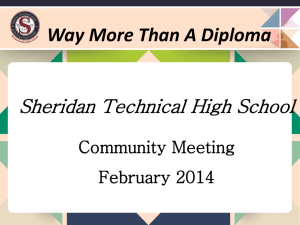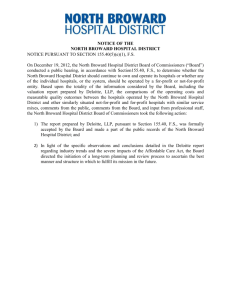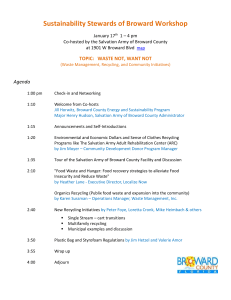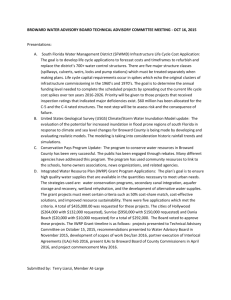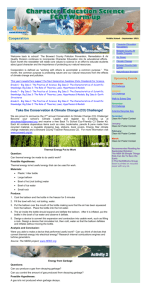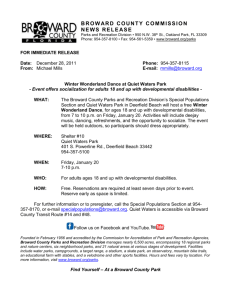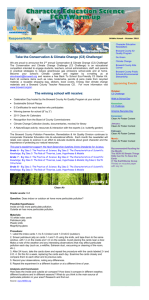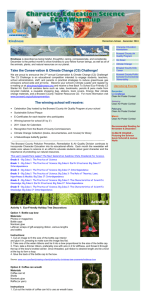Character Education Newsletter
advertisement
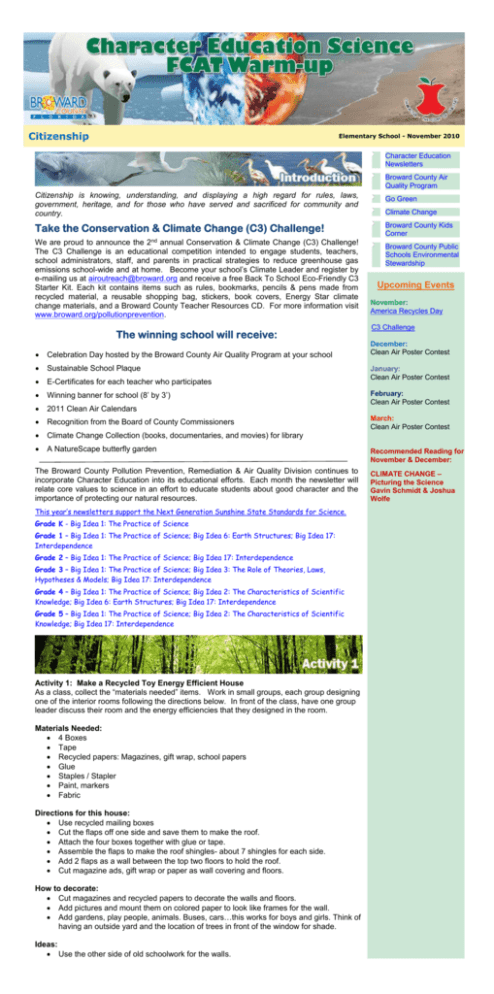
Citizenship Elementary School - November 2010 Character Education Newsletters Broward County Air Quality Program Citizenship is knowing, understanding, and displaying a high regard for rules, laws, government, heritage, and for those who have served and sacrificed for community and country. Take the Conservation & Climate Change (C3) Challenge! We are proud to announce the 2nd annual Conservation & Climate Change (C3) Challenge! The C3 Challenge is an educational competition intended to engage students, teachers, school administrators, staff, and parents in practical strategies to reduce greenhouse gas emissions school-wide and at home. Become your school’s Climate Leader and register by e-mailing us at airoutreach@broward.org and receive a free Back To School Eco-Friendly C3 Starter Kit. Each kit contains items such as rules, bookmarks, pencils & pens made from recycled material, a reusable shopping bag, stickers, book covers, Energy Star climate change materials, and a Broward County Teacher Resources CD. For more information visit www.broward.org/pollutionprevention. The winning school will receive: Celebration Day hosted by the Broward County Air Quality Program at your school Sustainable School Plaque E-Certificates for each teacher who participates Winning banner for school (8’ by 3’) 2011 Clean Air Calendars Recognition from the Board of County Commissioners Climate Change Collection (books, documentaries, and movies) for library A NatureScape butterfly garden The Broward County Pollution Prevention, Remediation & Air Quality Division continues to incorporate Character Education into its educational efforts. Each month the newsletter will relate core values to science in an effort to educate students about good character and the importance of protecting our natural resources. This year’s newsletters support the Next Generation Sunshine State Standards for Science. Grade K - Big Idea 1: The Practice of Science Grade 1 – Big Idea 1: The Practice of Science; Big Idea 6: Earth Structures; Big Idea 17: Interdependence Grade 2 – Big Idea 1: The Practice of Science; Big Idea 17: Interdependence Grade 3 – Big Idea 1: The Practice of Science; Big Idea 3: The Role of Theories, Laws, Hypotheses & Models; Big Idea 17: Interdependence Grade 4 – Big Idea 1: The Practice of Science; Big Idea 2: The Characteristics of Scientific Knowledge; Big Idea 6: Earth Structures; Big Idea 17: Interdependence Grade 5 – Big Idea 1: The Practice of Science; Big Idea 2: The Characteristics of Scientific Knowledge; Big Idea 17: Interdependence Activity 1: Make a Recycled Toy Energy Efficient House As a class, collect the “materials needed” items. Work in small groups, each group designing one of the interior rooms following the directions below. In front of the class, have one group leader discuss their room and the energy efficiencies that they designed in the room. Materials Needed: 4 Boxes Tape Recycled papers: Magazines, gift wrap, school papers Glue Staples / Stapler Paint, markers Fabric Directions for this house: Use recycled mailing boxes Cut the flaps off one side and save them to make the roof. Attach the four boxes together with glue or tape. Assemble the flaps to make the roof shingles- about 7 shingles for each side. Add 2 flaps as a wall between the top two floors to hold the roof. Cut magazine ads, gift wrap or paper as wall covering and floors. How to decorate: Cut magazines and recycled papers to decorate the walls and floors. Add pictures and mount them on colored paper to look like frames for the wall. Add gardens, play people, animals. Buses, cars…this works for boys and girls. Think of having an outside yard and the location of trees in front of the window for shade. Ideas: Use the other side of old schoolwork for the walls. Go Green Climate Change Broward County Kids Corner Broward County Public Schools Environmental Stewardship Upcoming Events November: America Recycles Day C3 Challenge December: Clean Air Poster Contest January: Clean Air Poster Contest February: Clean Air Poster Contest March: Clean Air Poster Contest Recommended Reading for November & December: CLIMATE CHANGE – Picturing the Science Gavin Schmidt & Joshua Wolfe Make your own drawings for the walls. Draw windows and doors (consider the direction of the sun). Paint and decorate the outside. Make energy star appliances in the kitchen, furniture and fireplaces from small boxes. Decorate the outside and inside. Make solar panels for your roof Make furniture from small blocks Source: http://www.planetpals.com/craft_recycle_doll_house.html Celebrate a Waste-Free Lunch Week! Have the students make posters and pictures of the alternative choices listed below. Have them bring home the posters to let their parents know what the class is celebrating. Discuss the importance of waste reduction and the impacts of their choices. Encourage all of the students to reduce the amount of garbage they dispose of. If possible, send an email to the parents with the subject: During the entire week; please bring a WASTE-FREE LUNCH! Instead of a: paper bag zip lock bag/aluminum foil drink box plastic spoon Bring a: reusable lunch sack Reusable plastic bowl for sandwich/snack thermos metal spoon Encourage the students to use silverware instead of plastic utensils for the week. For the most accurate results, the teacher should weigh the garbage before and after WASTE-FREE LUNCH WEEK. Teachers….calculate your impact and tell your school about what your class has done. Here’s an example, “Ms. Thomas’s second grade class calculated that if every child in Everglades Elementary school threw away one plastic bag every day, we would pollute our earth with: 3,600 plastic bags in one week; 14,400 plastic bags in one month; and 129,600 plastic bags on one year!” WE ALL CAN MAKE A DIFFERENCE! Source: http://www.wastefreelunches.org If you have a sample FCAT question you would like to see featured in this section, please email it to airoutreach@broward.org Next time we change our light bulbs, we should think about reducing the energy usage and the type of light bulb choices that are available. Which statement best explains why compact fluorescent light bulbs are better for the environment than incandescent light bulbs? A. CFLs use less energy. B. CFLs last longer. C. CFLs look cooler. D. CFLs should be handled with care and if they are dropped need to be properly disposed of. Answer: A The Walking School Bus Join the bus! A walking school bus is a group of children walking to school with parents or volunteers. It gives children a jump start on daily exercise and learning. Benefits include saving fossil fuels, reducing traffic & emissions around the school and students getting physical activity. Spread the Word!!! Subscribe to our electronic Character Education Science FCAT Warm-up Newsletters Today! The monthly edition of this newsletter is distributed only through a FREE electronic e-mail subscriber list. E-mail the Broward County Pollution Prevention, Remediation & Air Quality Division at airoutreach@broward.org to ensure that you continue to receive this valuable curriculum resource. The newsletters are also available on our Environmental Kids Club web site at www.broward.org/kids. Archived copies of the newsletter are also available through the School Board’s BEEP system.
